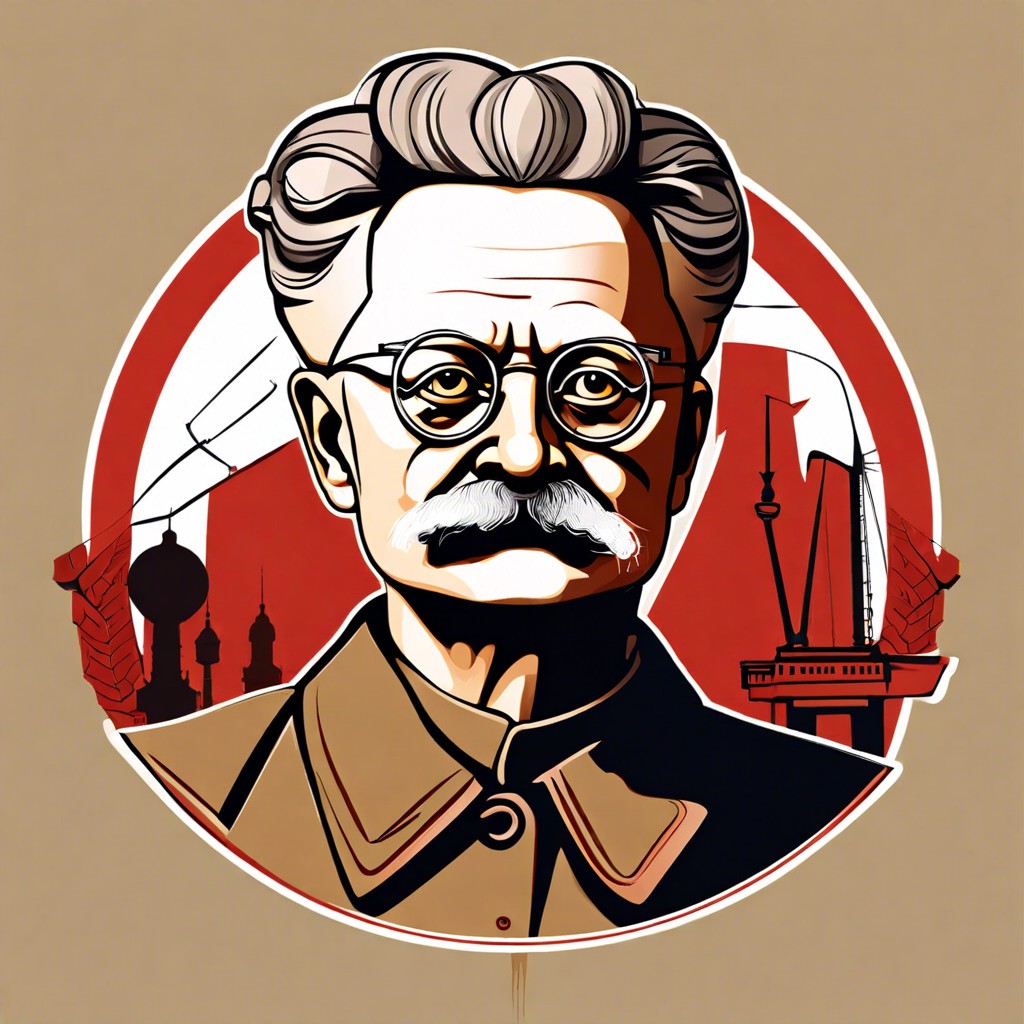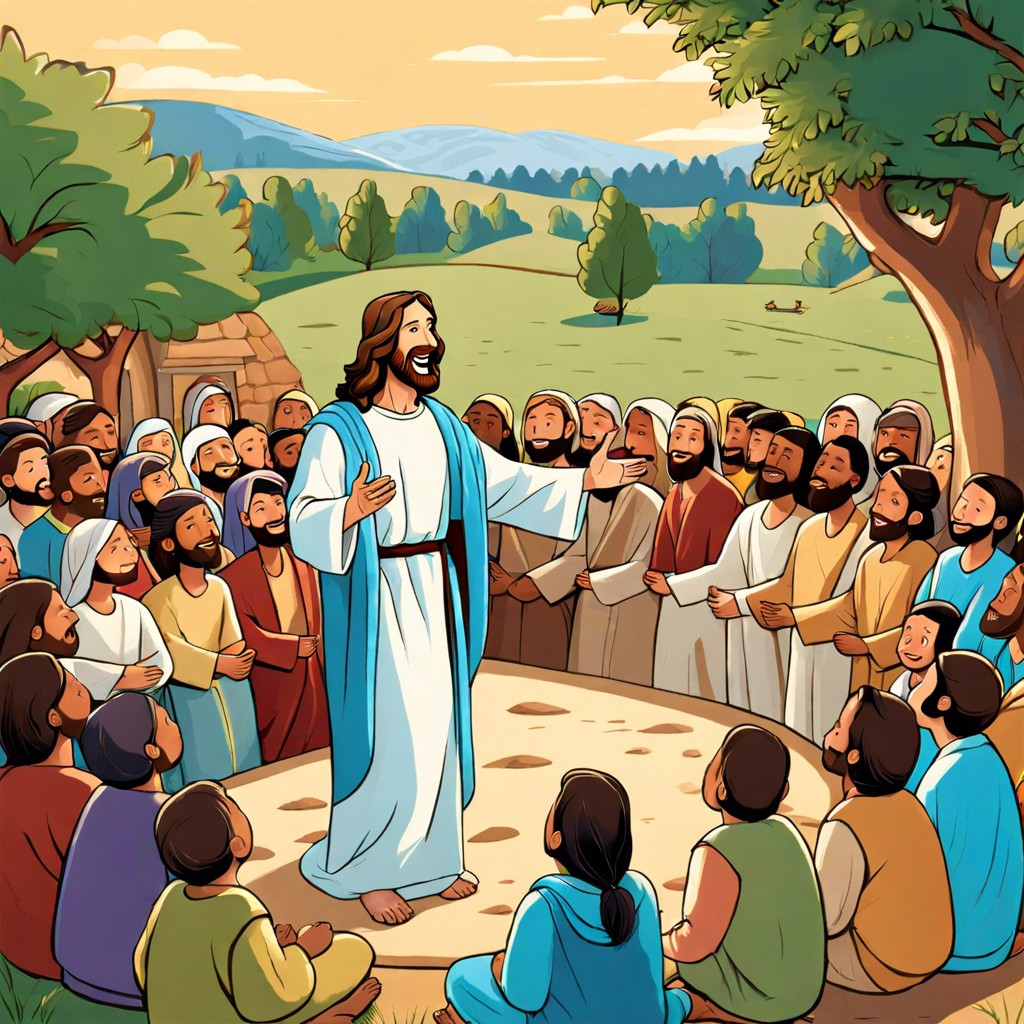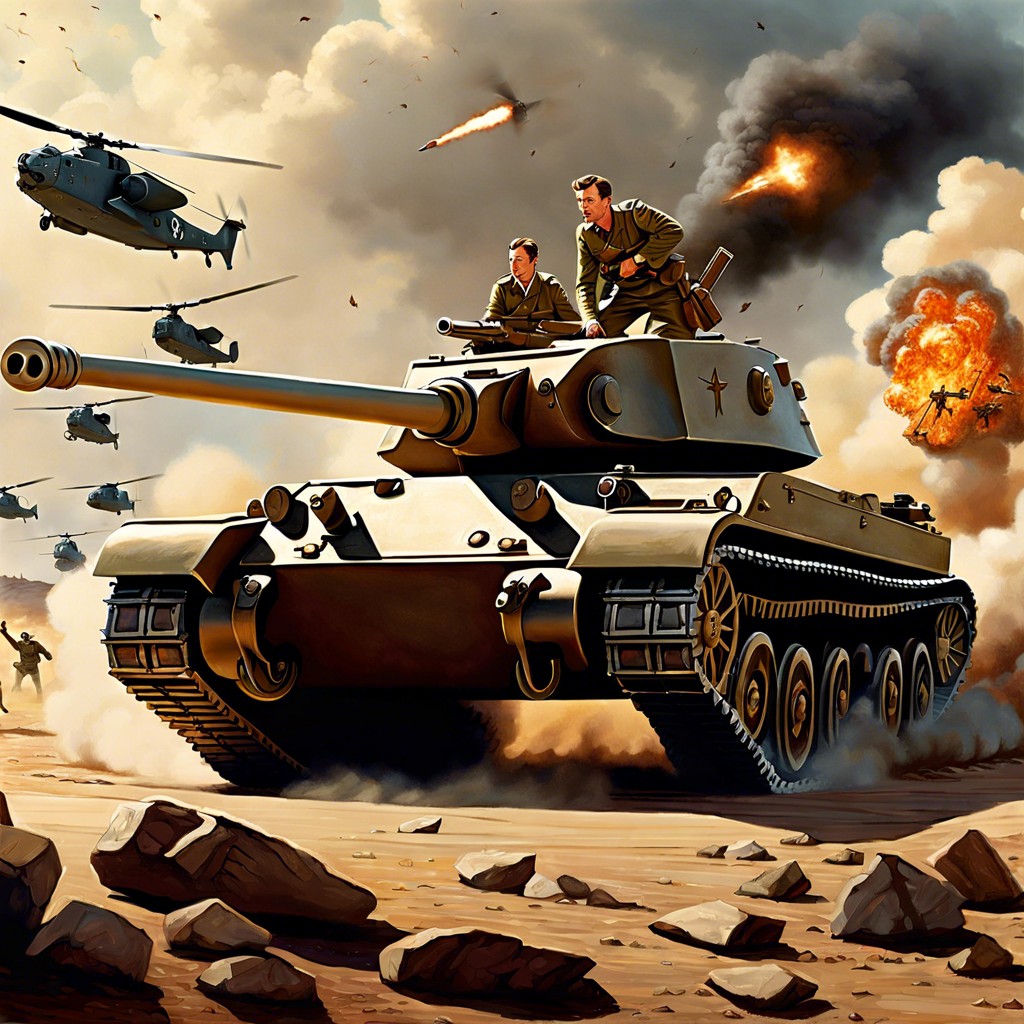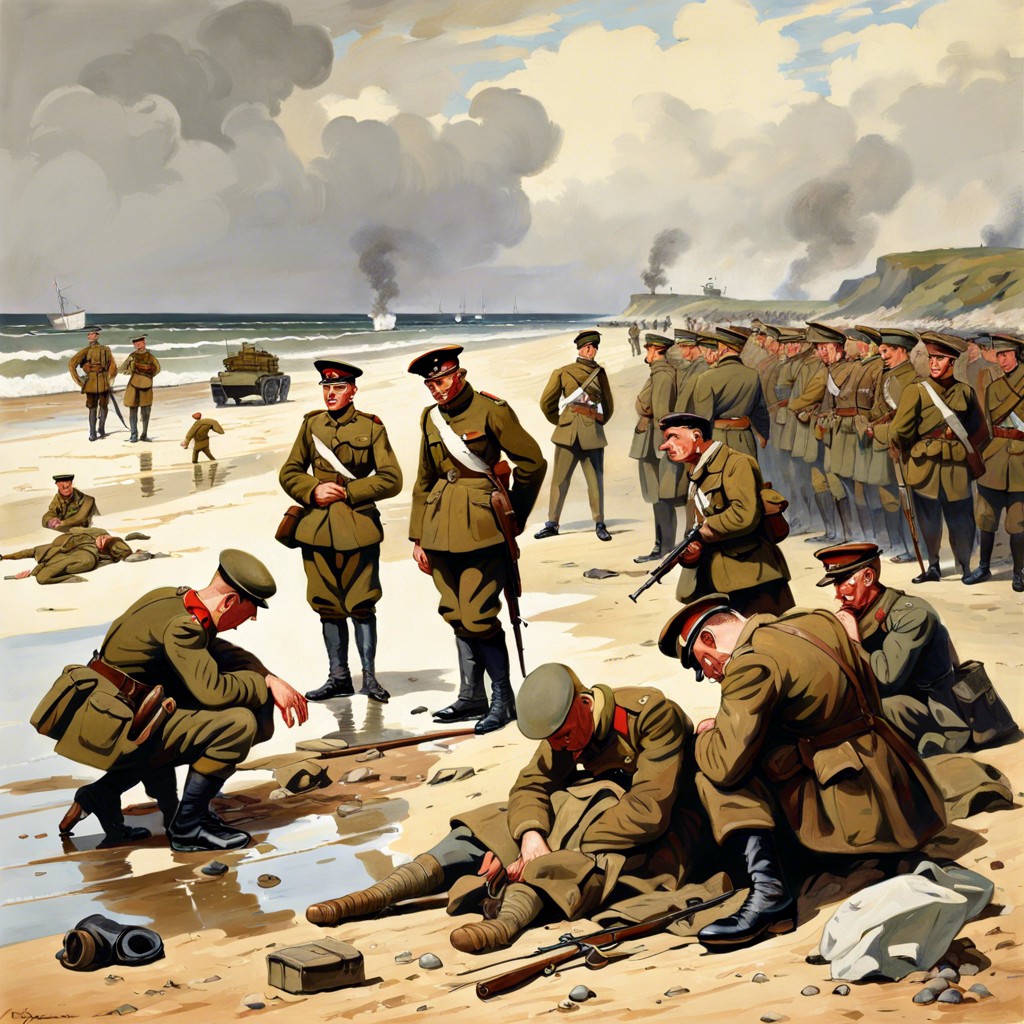Imagine a world where Trotsky, not Stalin, took the reins after Lenin; you’ll discover how Trotsky’s leadership might have reshaped Soviet history and global politics.
What if, in a wacky twist of history, Leon Trotsky had snaffled the power baton from Lenin? Waves across Soviet economic blueprints, a tango with global revolutions, a possibly more liberal stance in the Kremlin, and assuredly some serious Communist Party reshuffling would have been on the docket. Ready to dive into this whirlpool of alternate history? Buckle up, because this exploration promises to tickle your political imagination and leave you pondering the “what ifs” of the 20th century!
Key takeaways:
- Trotsky’s economic policies: More focus on consumer goods, less collectivization.
- Permanent revolution in foreign policy: Global uprisings, potential conflicts.
- Political repression and civil liberties: Mix of stern methods and global meddling.
- Changes in Communist Party dynamics: Inclusive leadership, dynamic decision-making.
- Global communist movements: United leftist efforts, closer anti-colonial alliances.
Impact On Soviet Economic Policies

Trotsky’s economic vision was distinctly different from Stalin’s. Imagine a landscape less focused on heavy industry and more on integrating worldwide revolution into economic policies.
Trotsky advocated for rapid industrialization but with a twist—international collaboration over isolation. He wasn’t a fan of sacrificing consumer goods for steel and factories. Picture a Soviet Union with more focus on increasing the standard of living, not just churning out tanks and tractors.
He also opposed the brutal collectivization of agriculture. This could mean fewer starving farmers and more efficient, incentivized farming practices. So, fewer pitchforks and more pitchforks’ worth of grain.
The idea of connecting global revolution to Soviet economics means, potentially, more foreign support and trading alliances, instead of closing borders tighter than a clam with lockjaw. This internationalist approach could redefine the entire Soviet economy.
Foreign Policy Shifts and Permanent Revolution
Trotsky’s foreign policy would likely have been a rollercoaster ride for the global stage. Unlike Stalin’s focus on “socialism in one country,” Trotsky believed in “permanent revolution.” This wasn’t a call for a never-ending spin class; it meant Trotsky aimed for continuous global uprisings.
Imagine Soviet support for revolutions from Berlin to Buenos Aires. Chaos, right? Well, maybe not. Trotsky viewed international uprisings as essential for authentic socialism. Without this, he feared capitalist countries would forever gang up on the Soviet Union, turning it into an isolated fortress rather than a beacon of equality.
Different approach to alliances? For sure. He’d likely endorse workers’ movements worldwide, but cooperation with capitalist states would be rockier than a mountain goat’s commute. Trotsky was the ultimate hype man for workers everywhere. Some might call that idealism; others might call it a recipe for endless conflict. Either way, it would have spiced up the 20th century’s political stew.
Trotsky’s Stance On Political Repression and Civil Liberties
Leon Trotsky had some spicy opinions on political repression and civil liberties, and it’s fair to say his approach would have given Stalin a run for his money—or perhaps his paranoia. Here are a few key decisions we might have seen:
Firstly, Trotsky was no softie. During the Russian Civil War, he had no qualms about ruthless tactics to crush opposition. You might say he believed in the old “spare the rod, spoil the proletariat” adage.
However, Trotsky argued for more ideological variety within the Communist Party, advocating for internal democracy. Imagine a Soviet Union where you might actually have a debate—well, at least until Trotsky ran out of patience.
He was also critical of Stalin’s extensive purges. Trotsky believed that over-the-top repression was counterproductive and unnecessary. But don’t let him fool you—Trotsky wasn’t exactly planning on passing out free speech pamphlets on Red Square.
Lastly, Trotsky’s focus on international revolution implied a slightly more global approach to political actions. His reign could have seen fewer show trials at home but more aggressive support for uprisings abroad.
In short, Trotsky’s attitudes toward political repression and civil liberties were a mixed bag of stern methods with a side of grudging debate—likely spiced up with a dash of global meddling.
Changes in Leadership Dynamics Within the Communist Party
Trotsky was known for his charisma and intellectual rigor, qualities that would have profoundly reshaped the Communist Party’s leadership.
First, his leadership style was more inclusive, prioritizing debates and open discussions. Unlike Stalin’s top-down approach, this could have fostered a more collaborative environment.
Second, Trotsky was a fierce critic of bureaucratization. He believed the Party should remain dynamic and responsive. Expect fewer lengthy, droning meetings and more rapid decision-making.
Lastly, Trotsky’s vision would’ve likely empowered younger, more ideologically driven members. Rather than a rigid hierarchy, imagine a party where youth and new ideas were constantly bubbling up. It could have been a political cocktail—both exhilarating and occasionally explosive.
Implications for Global Communist Movements
Trotsky’s ascent would have likely sparked a global wave of excitement among communist movements. His infamous notion of “permanent revolution” envisioned an ongoing, worldwide push for socialism, unlike Stalin’s more inward-focused strategy. Imagine your local communist club with a new spring in its step, ready to take on the world from Bangladesh to Bolivia.
Firstly, Trotsky’s push for continuous revolution could have united leftist movements worldwide. They’d be swapping revolutionary recipes quicker than hipsters trade kombucha starters.
Secondly, under Trotsky, the Communist International (Comintern) would have had a revived mission. Less about Soviet security, more about global camaraderie—like an over-enthusiastic travel blogger hitting every hotspot on the map.
Lastly, Trotsky’s idealism might have led to closer alliances with anti-colonial movements. Picture him sending telegrams saying, “Down with imperialism, up with us!” A boost for budding revolutionaries everywhere.
The global impact would have been like watching a wildfire spread: thrilling but dangerously unpredictable.




